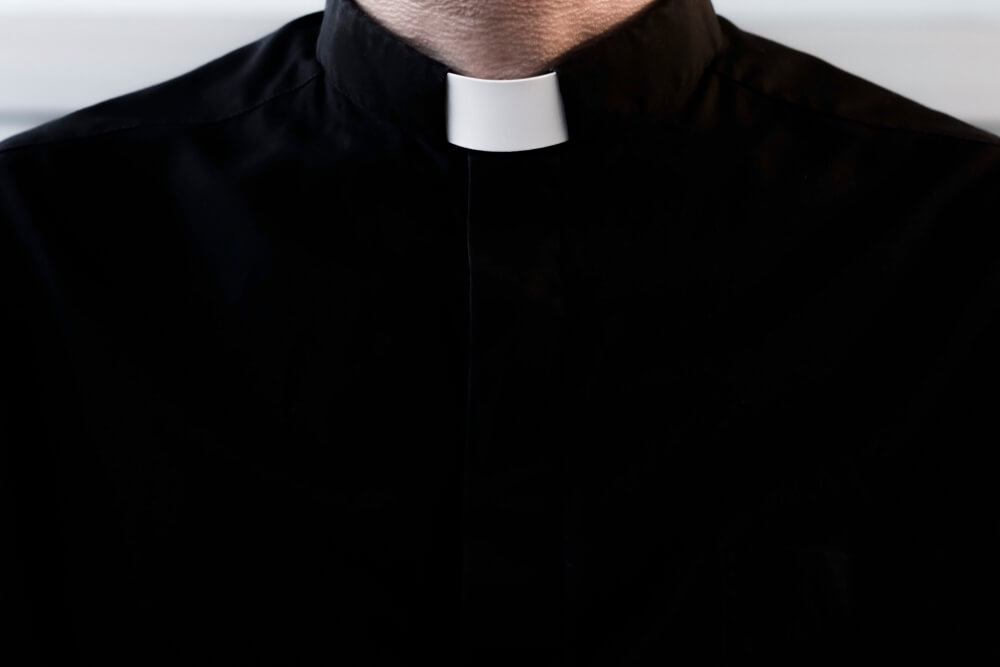There are times when priests are called upon to enter into challenging, and even dangerous, situations in fulfilling their vocation. For example, we recently highlighted the service of military chaplains who minister to those in war zones. And during the COVID-19 pandemic hospital chaplains are also being called to serve on the front lines of this health crisis.
Father John Kartje, rector of Mundelein Seminary in the Archdiocese of Chicago, stopped by Morning Air® this week to discuss how seminaries prepare priests to minister in a hospital setting, and how they are rising to the new challenges that this pandemic brings.
Fr. Kartje pointed out that hospital chaplaincy training has long been an integral part of seminary formation. He said, “For most students at Mundelein, and in many seminaries, it’s usually the summer after their second year they will go as a full-time intern chaplain, usually in a hospital setting. They’ll be right there alongside the professional chaplains. They’ll also do overnight calls, and that’s their immersion experience.”
“But right now is an extraordinary time in terms of the unique challenges with COVID,” he pointed out. “And so what they’re really having to deal with in many cases is the extremely limited presence that they’re able to have. Some of our alumni talk about how difficult it is when all they can sometimes show are their eyes, because everybody is gowned up with the protective equipment.”
Some particular challenges that come with this new health crisis are that many patients may be on ventilators and are unable to receive the Eucharist, protective measures mean that the physical aspect of the sacraments are not an option, and the fact that patients are isolated and families are not able to be with their loved ones. Hospital chaplains are being called to minister in new ways, not only to the patients, but also to their families.
“But it has always been the case, from Jesus training the disciples onward, that flexibility and adaptation is at the heart of our Catholic tradition,” Fr. Kartje said. “And I think the men are responding well to that.”
And how can hospital chaplains get the help they need, in processing what is a very emotionally and psychologically stressful task?
Fr. Kartje explained that the seminaries take the emotional and psychological formation of their future priests very seriously, and turn to the healthcare field for assistance in supporting priests and seminarians through these particular challenges.
“We’ve begun partnering with area medical schools, which obviously for decades have faced many of the same challenges, as to how do you prepare the doctors and healthcare professionals who find themselves in those same challenging situations. And so we’re learning a lot at Mundelein Seminary from some of our neighboring medical schools in terms of how they train their own caregivers to deal with that psychological stress and trauma. And you do that, as you might imagine, through counseling, through processing.”
“We fold that into their spiritual growth and development so that it all gets woven together in the man’s heart and mind,” he emphasized. “Because a chaplain is really an identity, right? It’s not a job description, and that’s what we’re striving for at the seminary.”
This crisis has highlighted the sacrifice and heroism of so many healthcare professionals and essential workers. And Fr. Kartje expressed his gratitude for the way in which hospital chaplains have risen to the occasion and have been able to use their training while adapting to these new challenges.
He told Morning Air hosts John Harper and Glen Lewerenz, “Cardinal Cupich formed a team of priests to be a COVID response team, and just about every one of those guys are Mundelein alumni. And for me it’s been a source of deep gratitude to see how they’re responding to that call and drawing on the training they received when they were here.”
Listen to the full conversation below:
Morning Air can be heard weekdays from 5:00 – 8:00 a.m. Central on Relevant Radio® and the Relevant Radio App.


